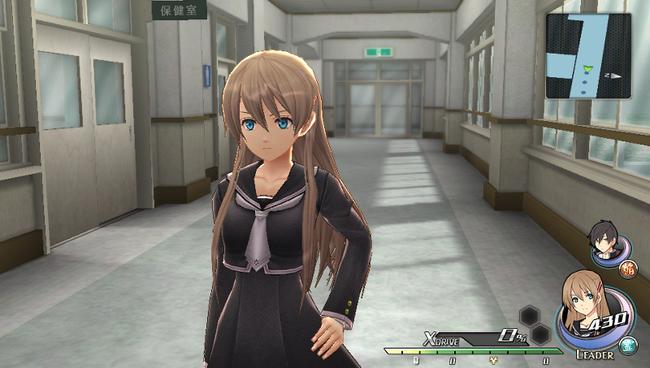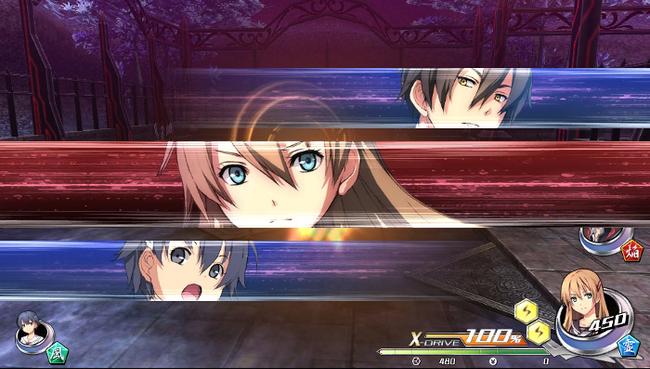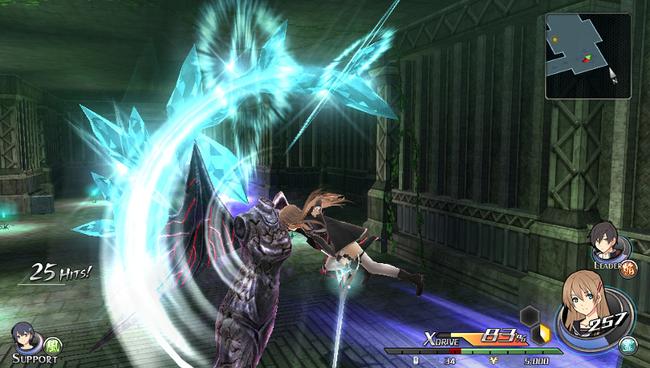
Tokyo Xanadu Review
Tokyo Xanadu is an action RPG developed by Nihon Falcom who is famous for their Ys and The Legend of Heroes series. Everything present in the game is a mixture of everything that Falcom has done in their recent games; the developer took a typical JRPG, added a little action, and threw it into modern day Tokyo. But is this a great idea?
On paper, it sounds amazing and has every element necessary to be a successful product. The characters are attractive and charismatic, and the story is incredibly vast for this genre. What could possibly go wrong with this title?

The core gameplay of Tokyo Xanadu is divided up into two parts - a social sim component, and a more typical RPG combat-based progression. The former consists mostly of doing quests and spending time with your comrades using Bonding Fragments, which allows you to spend time interacting with the other characters. This daily life segment is very reminiscent of Trails of Cold Steel, another RPG series from Falcom. Many systems are borrowed from Falcom's other titles, including the Bonding Fragments.
The UI bears a close resemblance to Cold Steel's as well. Completing certain tasks during these daily life periods will allow the protagonist to raise his social stats in a similar manner as the Persona Series' social parameters. This system has no real effect on the gameplay, but it is a component that players will have to be aware of if they do want to see the game's true ending.
The other half of the game is spent, expectedly, in combat. This occurs when your party travels into the Eclipse, which serves as the location for the game's dungeons. For battles, each character is equipped with a Soul Device to serve as their weapon, and each Soul Device can be customized by adjusting each weapon's master core. These customizations vary from raising specific stats for each character or allowing characters to inflict status ailments upon attacking; the system is similar to the orbment system from Trails of Cold Steel.
However, Tokyo Xanadu's variant of this system is a bit more streamlined. For example, master cores don't offer the same level of customization that the orbment system did. Also, the combat gameplay is very similar to recent Ys games. It features a party system that allows you to change characters mid-battle. Each character has three skills that they can use along with a super attack known as X-Drive.

The game performs very well on a technical level, maintaining a consistent 30 frames per second in most circumstances. There are some hectic situations that may result in a small dip in the performance, but it is never enough to harm the experience. Tokyo Xanadu uses the same graphics engine as the Trails of Cold Steel games, but models and textures are more refined and look cleaner.
The character designs all possess a good aesthetic that makes them distinct without being distracting. The music of the game is also one of its best elements. The tracks are not Team JDK's finest work, but there is a variety of memorable, high-quality songs throughout the game.
Most of the setbacks in Tokyo Xanadu come from the dungeon exploration. It is an action RPG at its core but the attempts to attract a larger audience result in a product that is oversimplified and fails to have the level of depth that Falcom fans have come to experience in their other titles. At its core, Tokyo Xanadu is just too easy. The game provides you with an abundance of healing items that can be spammed and abused at any time and there are a variety of mechanics present that allow your characters to become incredibly overpowered with very little effort at all.
Eventually, this leads the dungeon becoming a monotonous slog, never posing the slightest challenge and ultimately boring the player. The game has plenty of difficulty options, but even on nightmare, the highest difficulty, the game poses less of a challenge than previous Falcom games on easy mode.

As for the overarching narrative, Tokyo Xanadu Tells its story in an episodic format with each chapter's story being relatively self-contained. This format is reminiscent of Japanese light novels, where arcs make up a single chapter and usually have their own satisfying conclusions.
This episodic format may not be everyone's cup of tea, but the worldbuilding and NPC interactions are excellent. But the story often feels held back by an overuse of common tropes and never really hits its stride. The game also lacks an English dub, instead opting to offer a Japanese audio track exclusively. While this is sure to please fans who prefer this option, players hoping for a dub are likely to be disappointed.
Despite all its flaws, Tokyo Xanadu isn't a terrible game. It was a great idea on paper that wasn't refined enough to reach its full potential - many of its issues are a result of the low difficulty. Fortunately, the PS4 and PC version being released later this year is supposed to address many of these problems, featuring new content and rebalanced gameplay.
This original release is still a bit of a disappointment and leaves a mixed impression. If you are looking for a solid JRPG for Vita, this is a fully complete game, but for those wanting the absolute entire package, I would recommend waiting for the definitive version.